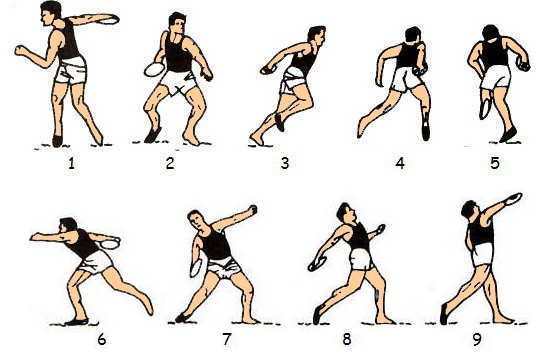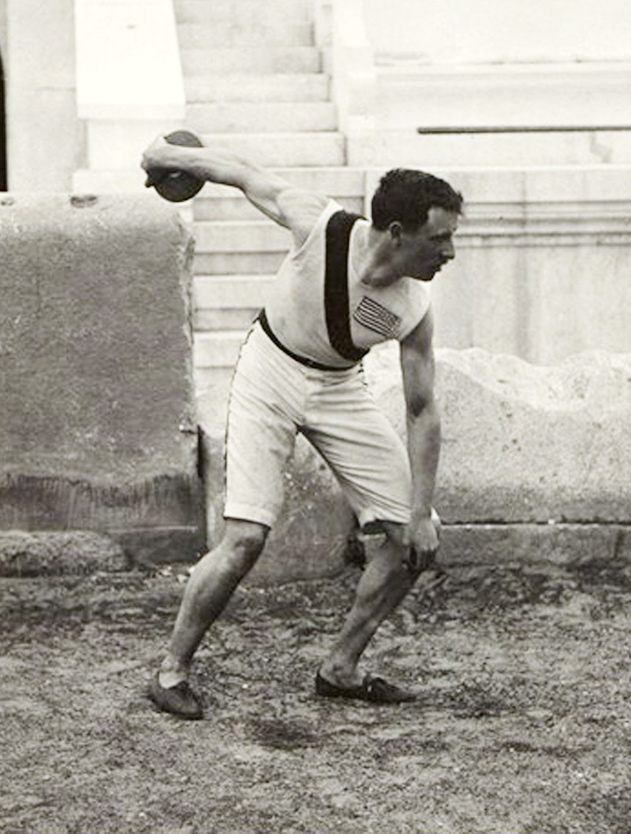The Robert Garrett Story)
In 1896, the world decided to bring back the heralded Olympic Games. The first ‘modern’ Olympics took place in Athens, Greece, that year.
Many athletes from around the world trained to compete there. One was Robert Garrett, a student at Princeton University. Robert was already a good athlete, well-liked, and in a position to represent his country at the then-new Olympics. He just needed to decide in which event to compete.
Garrett decided he would compete in the shot put. The one where you hurl a small metal ball as far as you can across the arena. While suicidal people stand nearby, waiting to measure the distance, thinking they won’t get hit with a flying metal ball for some reason.
His professor suggested he try the discus too. Garrett liked the idea, but had one question. “What’s a discus?”
(Pro Tip: It’s the ancestor to the Frisbee.)
Nobody knew. The discus had faded into the dust of history centuries before.
That didn’t stop Garrett. He studied old Greco-Roman drawings and paid a blacksmith to make one for him. Out of steel. 30 pounds of steel. Garrett tried to practice with this “sleeping child”-level-heavy discus, using the same hurling methods he used with the shot put.
A lot of sweat and muttered foul language later, Garrett gave up on the idea. The mechanics made sense, but the discus was just too heavy.
Until he got to the Olympics. And found out the real discus was just a wooden disc weighing less than 5 pounds! Far lighter than a shot put. He’d practiced all that time with a chunk of metal over 5 times heavier. Everything he did was out of whack.
So he figured, hey, why not try anyway?

Now, the Olympics of course had some Greek competitors. The Greeks made discus-throwing an art form. Practiced poise. Fluidity of motion. Women sighing in the stands as they swung their chiseled arms.
Here comes Robert Garrett. Hurling himself in a circle like an angry gorilla. Grunting and snarling like he’s about to chuck an anchor into the stands.
His first discus throw went way off base. Bounced all over. Nearly hit some bystanders.
The audience laughed. The contestants laughed. Garrett even laughed.
Then he did it again. The exact same way. The discus arced off to the side and threw up a bunch of dust as it skidded. Another off-base throw.
He only had one throw left. And the third time he threw…
The discus zoomed across the stadium like a bullet. It landed over 95 feet away – almost 8 inches past his Greek competitor.
That throw won him an Olympic gold medal. The first American gold medal of the 1896 Games.
I always liked this story. It’s a great example of what Wrongness does for the world.
Think about it. Garrett did almost everything wrong.
He used the wrong material in his discus.
He took the wrong stance at the Olympics.
He threw the discus wrong.
And in the process he changed the world. Won a gold medal for an event in which no American had EVER competed before. Showed up the competitors who had laughed at him.
He even changed how Olympic athletes throw the discus. To this day, instead of the ancient Greek way, people throw the discus like Robert Garrett did:

The ancient Greeks would say, “You’re doing it wrong!”
To which I say, “Yes! That’s why it works better!”
If you’re willing to enjoy Wrongness, there’s no limit to what you can discover.
Here’s a link to more on Robert Garrett.
